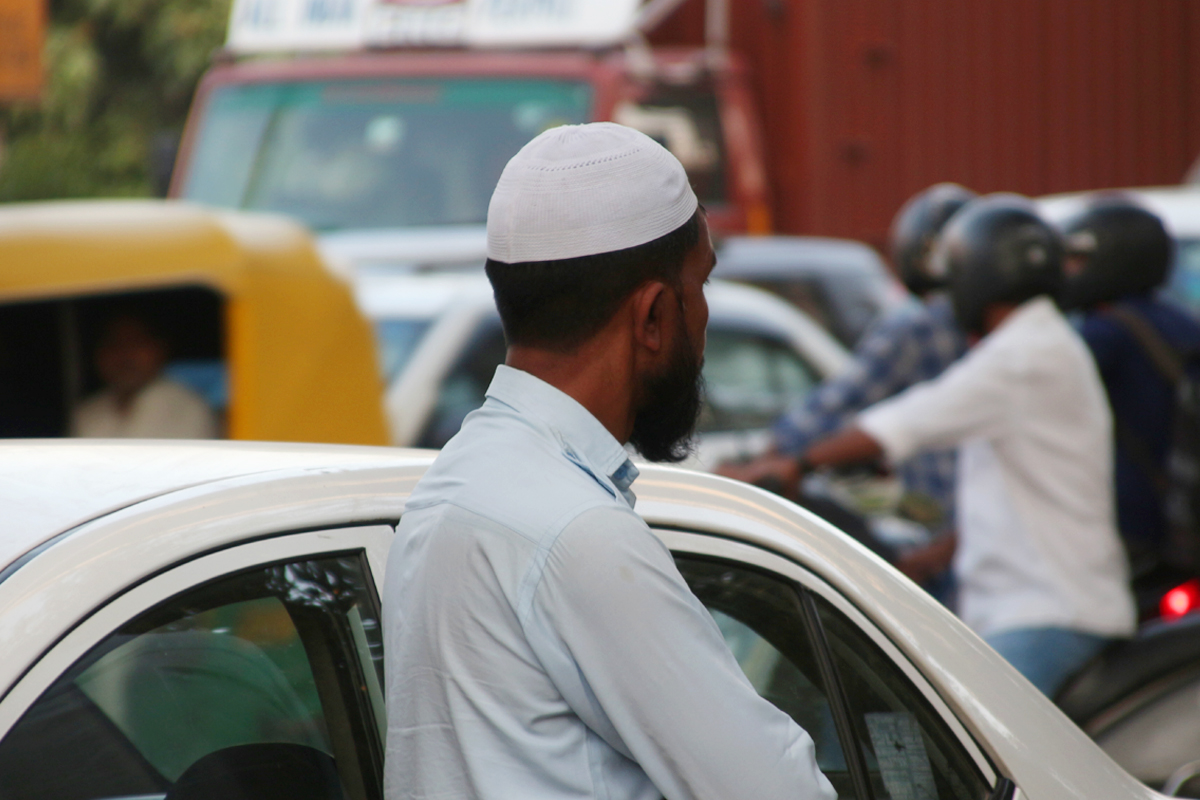In two interviews taken in the same month of May 2015, two experts of Muslim law, jurisprudence, theology, and eventual morality stemming from Islamic Scriptures.
The interviews were taken by a journalist and author who prides on documenting the travails of Indian Muslims in the 21st century, in a media portal (Scroll) that is generally seen as a whining pad of the victimhood of Indian Muslims, showcasing their minority syndrome.
The term ‘minority syndrome’ is used by Tahir Mahmood, in his interview with Ajaz Ashraf. ‘Ban triple talaq and abolish the Muslim Personal Law Board,’ says the former minorities commission chairman.
Tahir Mahmood, former Dean of Delhi University’s Law Faculty and former Chairman of the National Commission for Minorities, says impressive things revealing his knowledge of the Muslim Personal Laws, the fiasco of the Shah Bano case, all the politically correct rhetoric of liberty, dignity, and the rights of Muslim women.
One was compelled to order his ‘Introduction to Muslim Law’ and was disappointed to know that his autobiography ‘Amid Gods and Lords’ was out of stock on Amazon until one reads Arif Mohammad Khan’s interview a few weeks later by the same gentleman in the same month in the same media portal.
Arif Mohammad Khan is well-known for his stand during and after the Shah Bano case in 1986; he reveals a lot of the behind-the-scenes proceedings, the back and forth and the initial support of Rajiv Gandhi to the monumental decision of the Supreme Court of India in favour of Shah Bano, a destitute woman, abandoned by her lawyer and well-to-do husband, who refused to pay her court-ordered 179 rupees after the iddat period of talaq was over.
The subsequent U-turn of Gandhi as he chose politics over progress is fascinating, considering the roles played by idealogue Ali Miyan, Congress Minister Najma Heptullah, CK Jaffar Sharief (former minister) and eventually Tahir Mahmood.
The Congress government, headed by Rajiv Gandhi, instead of seizing upon the judgement to push ahead with a Uniform Civil Code, chose to pander to the ulema. The Muslim Personal Law Board scored a huge victory when Rajiv Gandhi used his brute parliamentary majority to steamroll the Muslim Women’s Bill in 1986, strengthening the case for sharia.
Arif M Khan’s description of the Congress leaders of Hindu heritage and their hesitation and outright refusal to push for a forward-looking attitude regarding the Muslim community is something still seen in the elected party leaders of the BJP and others, treading the triple talaq ban, the UCC, the CAA, the NRC, and the Karnataka hijab issue with caution.
If the machinations of Ali Miyan, Najma Heptullah, CK Jaffer Sharief and eventually Tahir Mahmood’s U-turn hurt deeply, the reluctance and refusal of ND Tiwari and Arjun Singh to usher the Indian Muslims into the new century for fear of being dubbed Hindu communalists disappoint gravely.
There are unjust laws and there is social justice. Jim Crow laws were unjust, as was apartheid in South Africa. People from all walks of life and all races came together to overturn the racism in the Southern States of the US in the 1960s. Countries cooperated and coordinated with each other to force the white rulers of South Africa, with sanctions, bans, disqualifications, and ostracism to do away with apartheid and free its famous prisoner of conscience, Nelson Mandela.
For the Congress party in 1986, there was a huge window of opportunity to give the nearly 180 million Indian Muslims of that time a respite from the stranglehold that the religious scholars have on them, to whom they have contracted their religion, as A Khan says.
But they not only faltered, but they also empowered the regressive deadwood of the Muslim Personal Law Board and its Muslim League idealogues like Ali Miyan by passing the Muslim Women (Protection of Rights on Divorce) Act, 1986 for which Arif M Khan resigned on principles.
We can’t go back in time; we can only go forward. Today, with a nationalist party at the helm of affairs and a sizeable number of leaders from Hindu and Muslim heritage in relevant portfolios, those statements by the Congress leaders shouldn’t find an echo.
Statements such as “if the Muslims want to lag behind and languish, why should the Hindus meddle in their affairs?’. Given that there is a good chance of being labelled communal or right-wing bhakts or sarkaari musalmaans it is still “their responsibility to hold the hands of the Muslims and drag them into the 21st century”.
Remember, idealogues like Ali Miyan get intellectual cover fire from Muslim intellectuals, safely ensconced in comfortable jobs within the left-liberal ecosystem, who are not affected by the inequities of personal laws, and who claim to be the sole spokespersons of the Indian Muslims (just like Jinnah in the 1940s).
Such opportunist intellectuals from the Muslim heritage itself, just like Heptullah and T Mahmood and the author of the following article, play with social justice, coming up with derogatory terms like ‘Siyaasi Muslims’ to keep the 184 million in a permanent victimhood syndrome and whining about their ‘Oppression Olympics’.
It is good that the elected party is trying to reach out to the Indian Muslims not through the Ashraf elite like in 1986 but through the Ajlafs and Arzals (Pasmandas) who were truly ‘left behind’ in progress all these seven decades post-independence. It will have to overcome this phobia of its global image as a fascist or communal government to stand for what the Congress did not – social justice, not just within India but across the borders in our neighbouring countries too.
Arshia Malik is a Delhi-based writer, blogger and social commentator
Disclaimer: Views expressed above are the author’s own










